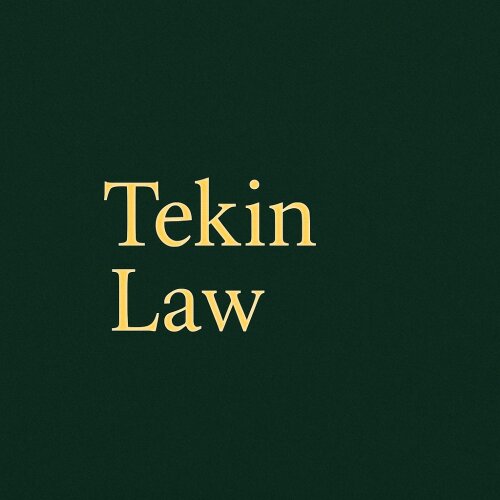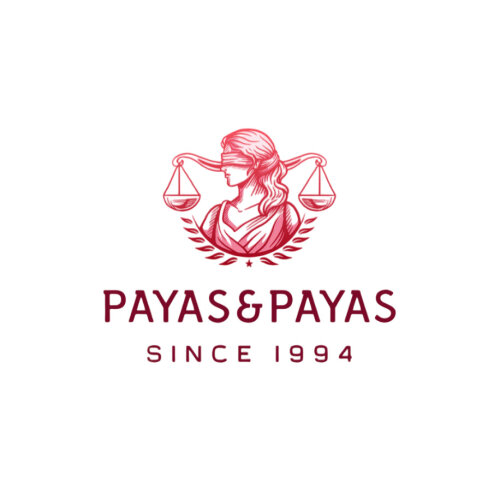Best Landlord & Tenant Lawyers in Turkey
Share your needs with us, get contacted by law firms.
Free. Takes 2 min.
Free Guide to Hiring a Real Estate Lawyer
Or refine your search by selecting a city:
List of the best lawyers in Turkey
Legal guides written by Tekin Law Firm:
- Arbitration in Turkey
About Landlord & Tenant Law in Turkey
The landlord and tenant relationship in Turkey is primarily governed by the Turkish Code of Obligations (TCO), which outlines the rules and responsibilities of both parties in rental agreements. This legal framework aims to provide a fair and balanced relationship by laying out terms related to the leasing of properties, rent increases, rights of usage, and terminations. The law applies to residential as well as commercial leases, with some different provisions applicable to each. Understanding these laws is essential for both landlords and tenants to ensure their rights are protected and obligations are met.
Why You May Need a Lawyer
There are numerous situations where legal assistance may be necessary in landlord and tenant matters in Turkey:
- Lease Disputes: Conflicts may arise over lease terms, maintenance responsibilities or property usage that require legal intervention.
- Eviction Proceedings: Legal assistance is crucial to correctly navigate the process, whether you're a landlord seeking to evict a tenant or a tenant facing eviction.
- Rent Increases: Understanding legal limits and procedures for adjusting rent can necessitate legal guidance.
- Lease Agreements: Drafting or reviewing contracts to ensure compliance with Turkish laws can prevent future disputes.
- Security Deposits: Handling disagreements over deposit returns can often require legal advice.
Local Laws Overview
Key aspects of Turkish landlord and tenant law include:
- Lease Contracts: The TCO mandates that leases must be in written form, although oral agreements can still be enforceable under certain circumstances.
- Rent Adjustments: Rent can generally only be increased as per terms agreed upon in the lease or as regulated by law, typically based on the consumer price index.
- Evictions: Eviction laws in Turkey protect tenants by requiring landlords to follow due process, including obtaining a court order in most cases.
- Maintenance Responsibilities: While landlords are responsible for structural maintenance, tenants must handle normal wear-and-tear and minor repairs.
- Duration of Leases: Lease duration can be indefinite or fixed-term; however, tenants have the right to renew if they meet specific legal conditions.
Frequently Asked Questions
What is the legal notice period for ending a tenancy?
Turkish law generally requires a one-month notice period for either party to terminate a lease agreement without a fixed term.
Can a landlord increase rent arbitrarily?
No, rent increases are regulated by law and are typically based on the consumer price index, unless otherwise stated in the contract.
What is the process for evicting a tenant?
Eviction usually requires filing a lawsuit and obtaining a court order, ensuring tenants are formally notified and given the opportunity to contest.
Who is responsible for repairs in a rental property?
Landlords are generally tasked with structural repairs while tenants handle daily wear and minor repairs.
What recourse does a tenant have if a landlord withholds a security deposit?
Tenants can file a legal claim to recover withheld security deposits if the landlord fails to provide a valid justification.
Are verbal lease agreements valid and enforceable?
While written agreements are the standard, verbal agreements can still be enforceable, but proving terms may become challenging.
Can a lease be terminated early by a tenant?
Early termination is possible under specific conditions defined in the lease agreement or with mutual consent from the landlord.
Is subletting allowed in Turkey?
Subletting typically requires the explicit permission of the landlord, which should be outlined in the lease agreement.
What can be done if a tenant damages the property?
The landlord may deduct repair costs from the security deposit or seek further compensation through legal action if necessary.
Are pets allowed in rental properties?
The allowance of pets should be explicitly stated in the lease agreement, as some landlords might impose restrictions.
Additional Resources
For individuals seeking more information or assistance, the following resources can be invaluable:
- The Ministry of Justice: Offers guidance on legal rights and court services in Turkey.
- Bar Associations: Local bar associations can help locate qualified lawyers specializing in landlord and tenant law.
- Chambers of Commerce: Provide resources for commercial landlords and tenants on property law matters.
- Legal Aid Organizations: Offer free or low-cost legal services to those who qualify.
Next Steps
If you require legal assistance in landlord and tenant matters, consider the following steps:
- Research and choose a lawyer specializing in landlord and tenant law in Turkey.
- Prepare all relevant documents, including lease agreements and any correspondence with the other party.
- Schedule a consultation to discuss your situation and receive tailored legal advice.
- Consider mediation or alternative dispute resolution options, if appropriate.
Taking proactive steps and seeking professional legal counsel early can help protect your rights and facilitate a smoother resolution of landlord and tenant issues in Turkey.
Lawzana helps you find the best lawyers and law firms in Turkey through a curated and pre-screened list of qualified legal professionals. Our platform offers rankings and detailed profiles of attorneys and law firms, allowing you to compare based on practice areas, including Landlord & Tenant, experience, and client feedback.
Each profile includes a description of the firm's areas of practice, client reviews, team members and partners, year of establishment, spoken languages, office locations, contact information, social media presence, and any published articles or resources. Most firms on our platform speak English and are experienced in both local and international legal matters.
Get a quote from top-rated law firms in Turkey — quickly, securely, and without unnecessary hassle.
Disclaimer:
The information provided on this page is for general informational purposes only and does not constitute legal advice. While we strive to ensure the accuracy and relevance of the content, legal information may change over time, and interpretations of the law can vary. You should always consult with a qualified legal professional for advice specific to your situation.
We disclaim all liability for actions taken or not taken based on the content of this page. If you believe any information is incorrect or outdated, please contact us, and we will review and update it where appropriate.
Browse landlord & tenant law firms by city in Turkey
Refine your search by selecting a city.

















